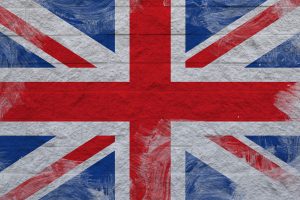UK Online Safety Bill Delayed in House of Commons Again
 LONDON — After the resignation of Liz Truss and her tumultuous 50-day term as UK prime minister, members of the House of Commons chose conservative Rishi Sunak as the next leader of His Majesty’s Government amid financial and political crises on all fronts of politicking.
LONDON — After the resignation of Liz Truss and her tumultuous 50-day term as UK prime minister, members of the House of Commons chose conservative Rishi Sunak as the next leader of His Majesty’s Government amid financial and political crises on all fronts of politicking.
Like developments in the United States on policy and litigation related to Section 230 of the Communications Decency Act, adult industry professionals from around the world need to pay attention to the Online Safety Bill and its direct and indirect impact on the industry. As is the case for internet policy and regulations coming out of world powers like the US, EU, or India, the Online Safety Bill will be wide-ranging.
Even though the dust has yet to settle on Sunak’s ascension to Prime Minister, there is already concern among critics and proponents of the Online Safety Bill proposed during the tenure of former Prime Minister Boris Johnson. PoliticsHome, a London-based political insider news outlet, noted that the Online Safety Bill was due for third reading in the Commons on November 1. But, recent actions indicate that conservative leadership has yet again removed the bill from upcoming Commons business. The stages of the Online Safety Bill’s process were meant to take place back in the summer, around July, but those proceedings were again delayed due to Johnson’s resignation after another controversial term, proceeding after the removal of controversial Tory PM, Theresa May.
Michelle Donelan, the UK Secretary of State for Digital Culture, Media and Sport (DCMS), told the media to expect the final stages of the flagship child protection bill to return in the autumn and to expect action on the bill, potentially making it law. Truss prevailed to replace Johnson and put the brakes on the Online Safety Bill quickly, citing concerns over the bill’s impact on freedom of speech on the internet and digital spaces.
Concerns over the limitations of certain forms of speech on the internet attracted much of the controversy targeted at the government. Last month, however, Donenlan confirmed that “legal but harmful speech” provisions would be changed and are currently under review. TechCrunch reported that a source the outlet has within the DCMS said that the delay on the Online Safety Bill is due to the fact that MPs need to read up on a series of new amendments to the bill.
“Each day this crucial legislation is delayed is another day imagery of children being sexually abused spreads further online. This is the reality,” said Susie Hargreaves, chief executive of the Internet Watch Foundation, in a statement condemning the government for the delay.
Hargreaves is a leader of one of several internet safety groups in the UK that have aligned with religious and far-right anti-porn groups to censor porn companies and the webmasters and owners of popular adult websites. Even though members of the adult entertainment industry have welcomed some of the provisions in the Online Safety Bill, like age-verification and user-identity-verification measures, the proposal is nonetheless controversial among civil society groups and among both Labour and Conservative MPs worried about censorship.
The status of the Online Safety Bill remains up in the air, but Sunak is likely to adopt the bill. In a statement to The Telegraph in August, during the race to replace Johnson and whom Truss succeeded, a spokesperson for Prime Minister Sunak at the time said that he “has spoken passionately as a dad about his desire to protect children online from content no parent would want their children to see.” The statement adds that he is dedicated to protecting the realm’s children from images of “violence, self harm and suicide to pornography.”
“As Prime Minister he would urgently legislate to protect children,” the spokesperson added in the same position statement to The Telegraph. “His concern with the bill as drafted is that it censors free speech amongst adults which he does not support. Rishi believes the Government has a duty to protect children and crack down on illegal behaviour, but should not infringe on legal and free speech.”













